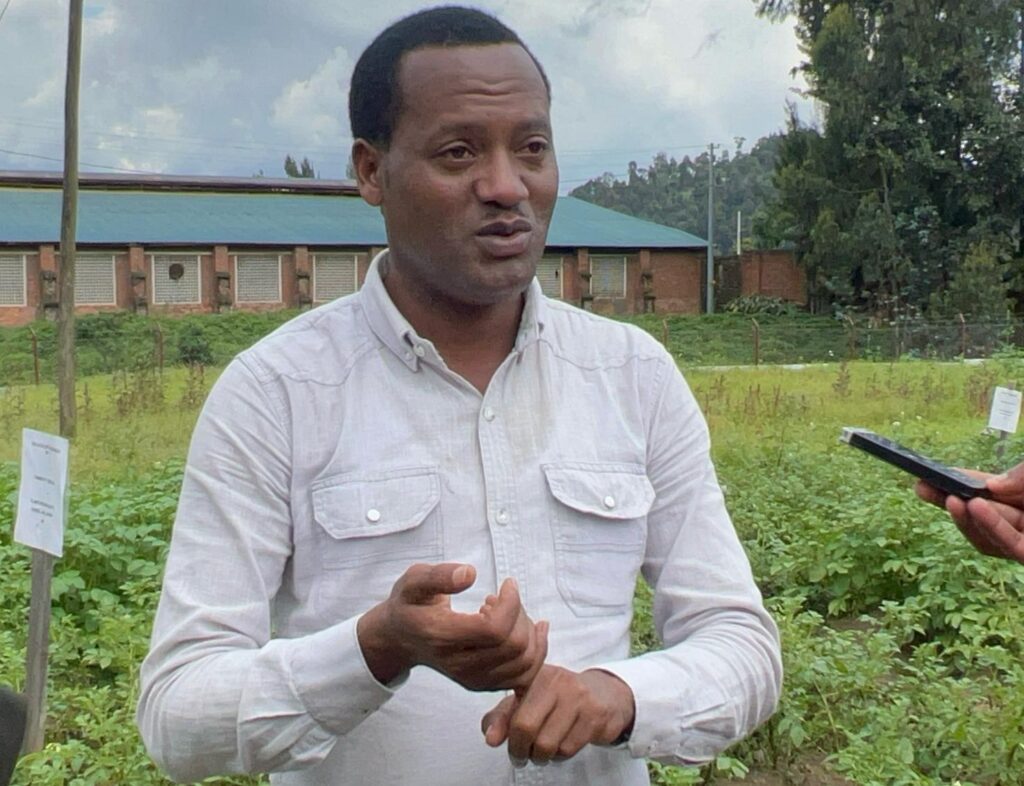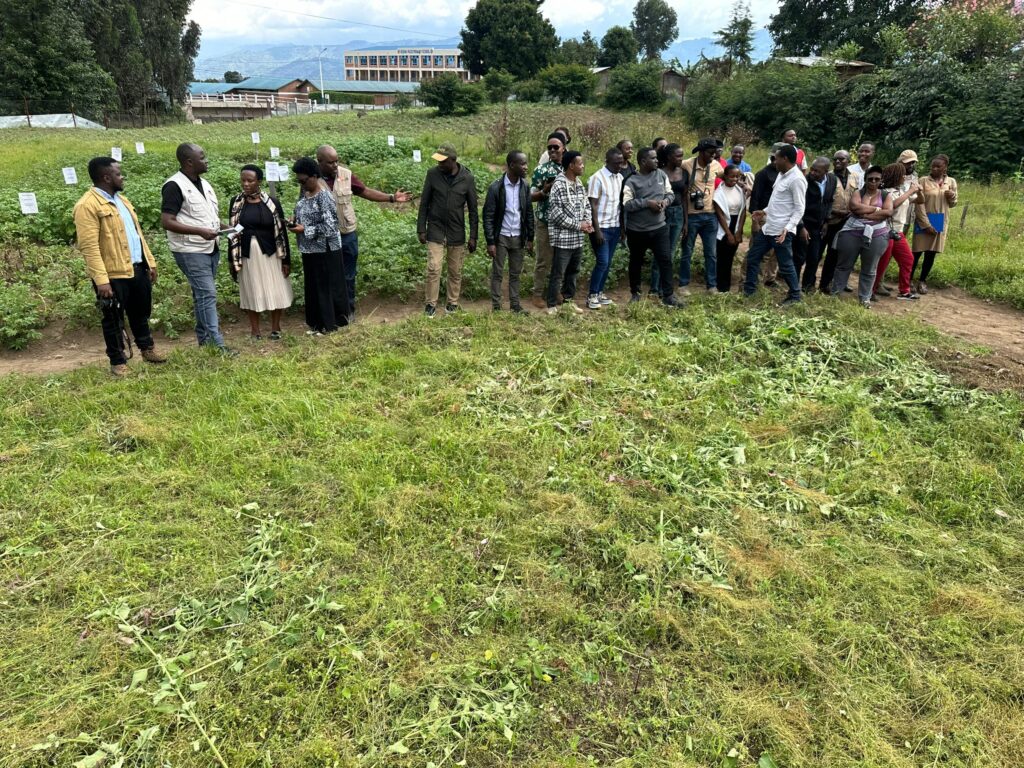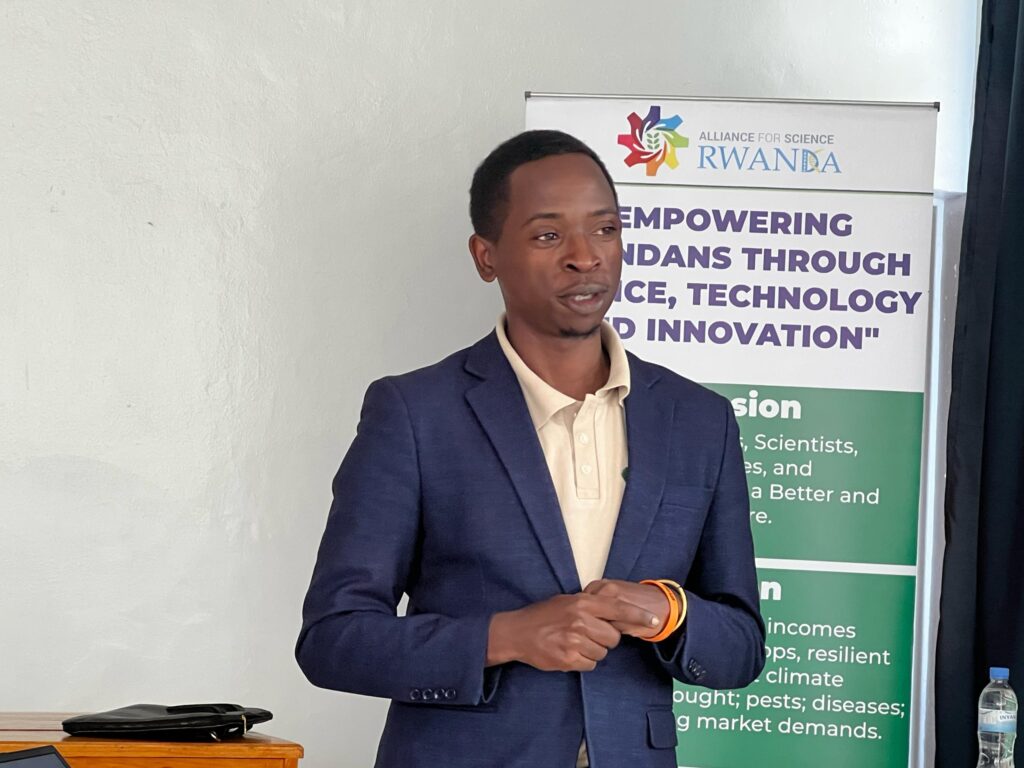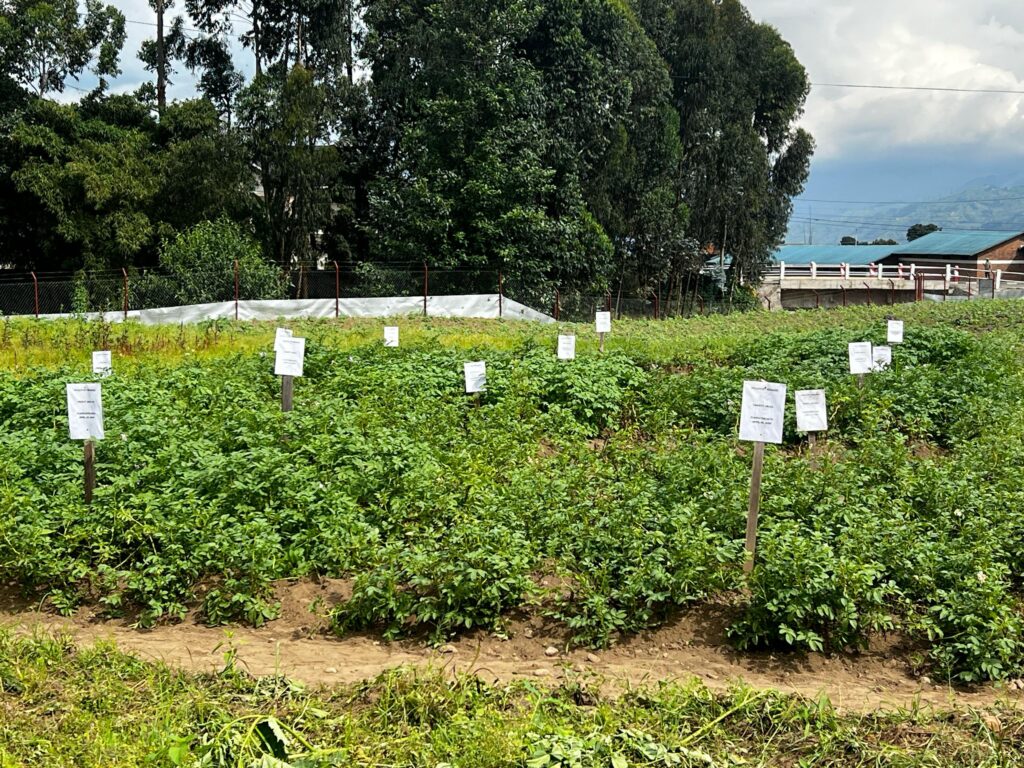Rwanda is on track to introduce genetically modified (GMO) potatoes within two years, a move agricultural scientists and farmers say could double yields and reduce the need for costly pesticides.
The government-backed initiative, led by the Open Forum on Agricultural Biotechnology in Africa (OFAB) and the Rwanda Agriculture and Animal Resources Development Board (RAB), is currently in the research and testing phase. Officials expect to begin distributing the seeds to select farmers once regulatory approvals are secured.

“We aim to provide farmers with disease-resistant potato seeds that don’t require frequent pesticide use,” said Dr. Athanase Nduwumuremyi, a senior researcher at RAB and the national coordinator of the OFAB project. “This will not only lower production costs but also increase yields from an average of 8 tons per hectare to potentially 35 to 40 tons.”
The announcement comes after a five-day training hosted by OFAB Rwanda Chapter, which brought together farmers, journalists, and agricultural stakeholders to raise awareness of biotech crops and their role in food security.

Rwanda, a signatory to the Maputo Declaration pledging 10% of its budget to agriculture, has increasingly invested in research to improve crop resilience. GMO technology is already being used in other African countries such as Nigeria and South Africa, where it has been credited with improving yields and reducing pesticide dependence.
Nshimiyimana Pacifique, director of Alliance for Science Rwanda, said biotech potatoes could alleviate environmental and financial burdens for farmers in Rwanda’s Northern Province, where pesticide use has been high.

“Farmers have been spending heavily on chemical inputs and labor,” Pacifique said. “By eliminating much of that, GMO seeds will not only improve productivity but also reduce harm to pollinators and soil organisms.”
The new seeds are being developed in research stations in Musanze, Gishwati, Nyamagabe and Rwerere. Using a combination of aeroponics, sandponics, and tissue culture, scientists are producing disease-free seedlings known as “minitubers,” which will serve as the foundation for future certified seed distributions.
Experts say biotech crops are thoroughly regulated and tested before being released to farmers. Rwanda’s GMO potatoes are undergoing safety evaluations, including environmental impact assessments by the Rwanda Environment Management Authority (REMA).

“Our goal is to ensure that Rwanda becomes food secure, even with limited land,” Dr. Nduwumuremyi said. “We are not altering taste or nutrition — we’re enhancing the plant’s ability to withstand pests and changing weather.”
If successful, officials say GMO potatoes could significantly reduce post-harvest losses and stabilize prices, ensuring more consistent supply in local and regional markets.











